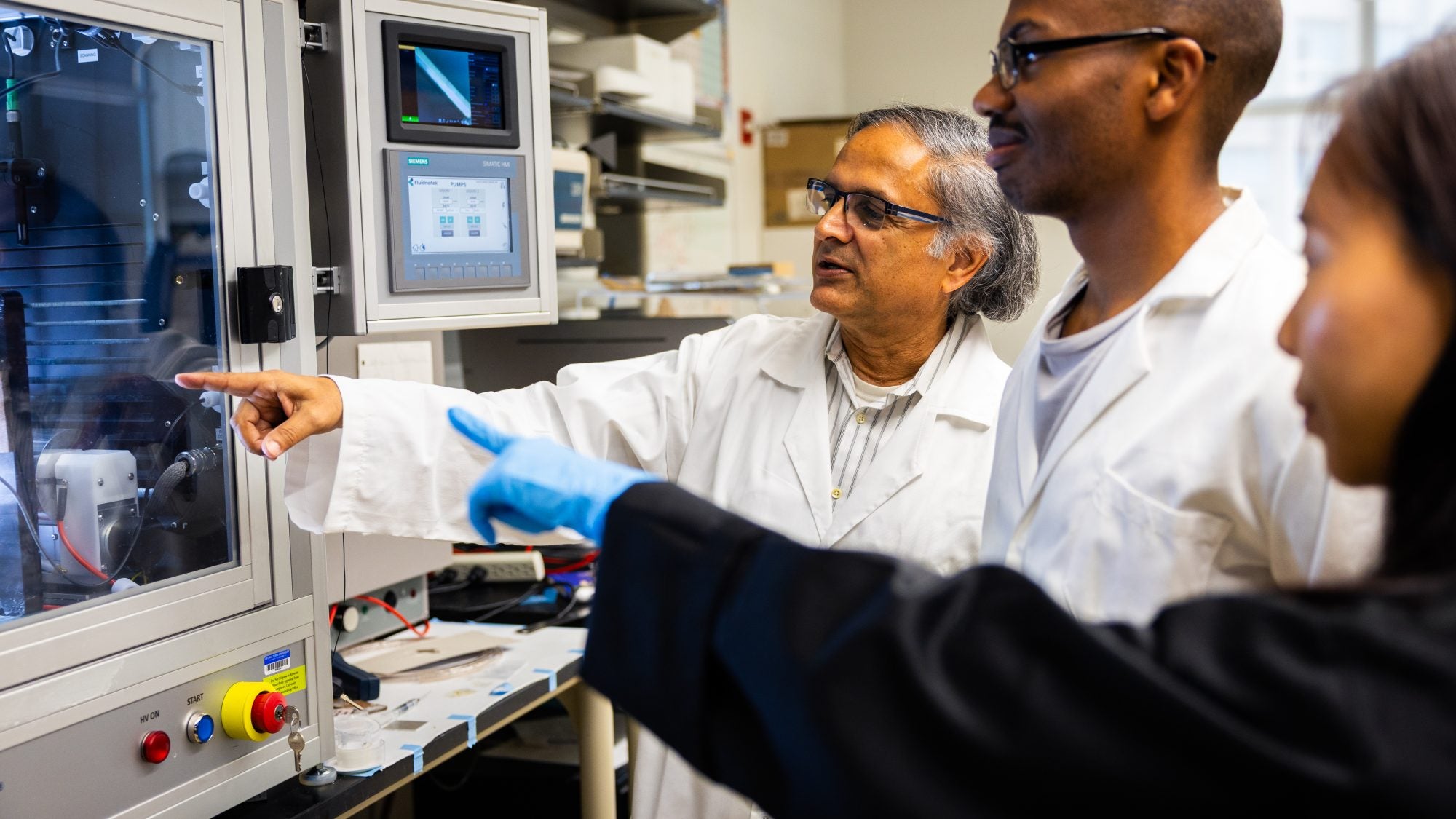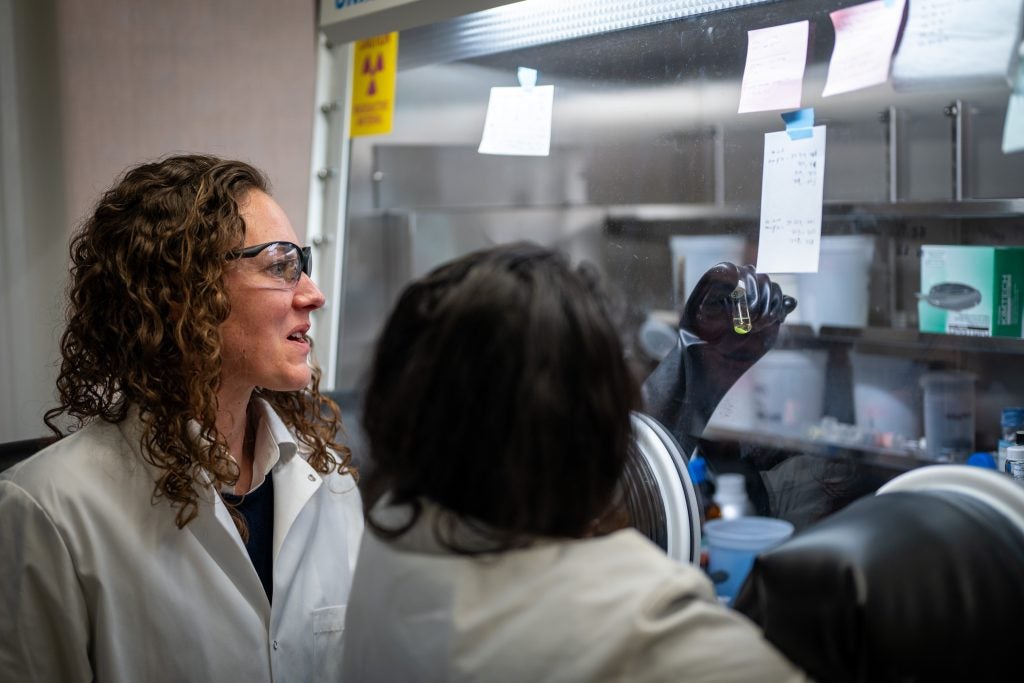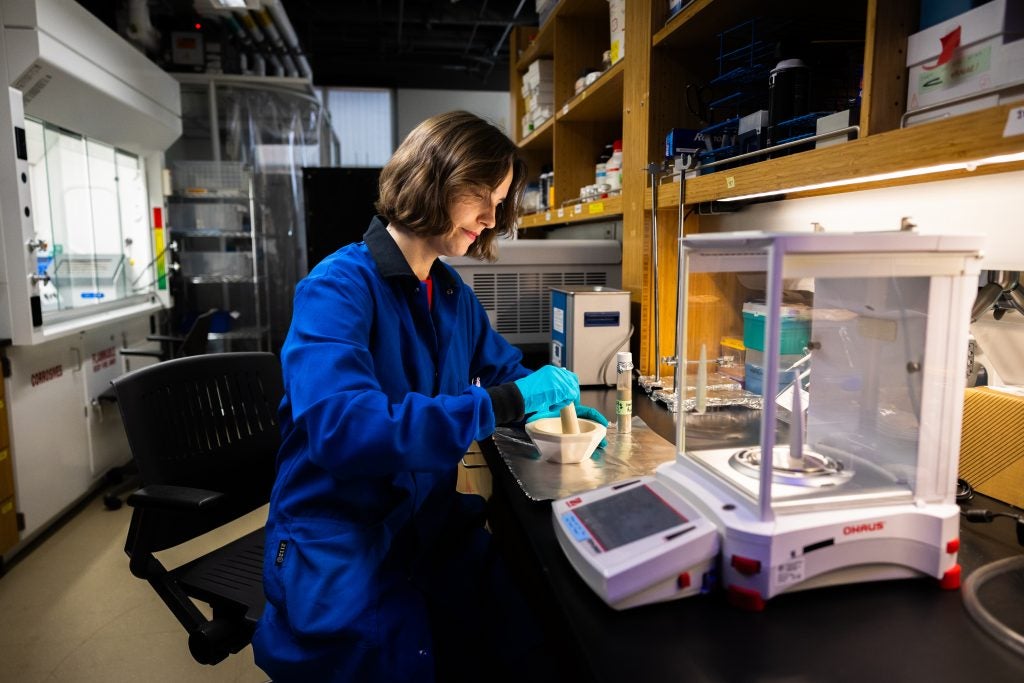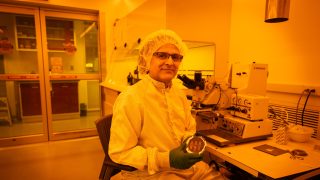Research is a core part of Georgetown.
Georgetown researchers have made significant contributions to every academic field over the university’s long history, from the creation of a life-saving vaccine to the discovery of a new cosmic substance.
Today, researchers at Georgetown push the boundaries in fields such as biomedical technology and microplastics while generating new insights in disciplines like business, international relations and the humanities.
In February, Georgetown was designated as an R1 institution by the Carnegie Classification of Institutions of Higher Education for the 30th year in a row. The designation is awarded to the top U.S. research universities with “very high research activity.” 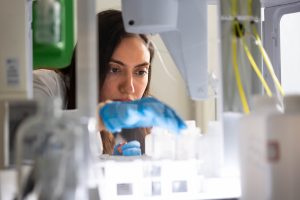
For Jeff Urbach, a physicist and the vice provost for research, research is an indispensable part of Georgetown that enables the university to live out its Catholic and Jesuit mission.
“It’s at the heart of what our faculty does. I think all our faculty would say that their research program is in part how they stay vital as scholars,” Urbach said. “We are also a Jesuit university, men and women for others. Social impact is a big part of what we do, translating that fundamental research to social impact.”
As a new school year begins, we sat down with Urbach and Anna Tate Riegel, vice president for research at the Georgetown University Medical Center and vice dean of Biomedical Graduate Education, to talk about the importance of research, of training the next generation, and what sets Georgetown apart from other research universities.
Research at Georgetown University
What is the role of research at a university like Georgetown?
Urbach: It’s at the heart of what our faculty does that is essential for maintaining that level of deep inquiry. It’s important to have faculty who are engaged in scholarship and pushing the frontiers of knowledge.
But it’s much more than that as well. There’s the education part, training the next generation, whether they’re going to continue that research and be scholars themselves or go out into the wider world and use the skills that they’ve developed to do other things.
Riegel: I totally agree. You can’t do academics without research. You can do didactic learning, pick up a book, learn a bunch of facts, but then you have to have the inquiry aspect to push further and ask the questions about where this goes in the future. That’s what a research mindset is all about.
What are the unique contributions universities make to research compared to private industry?
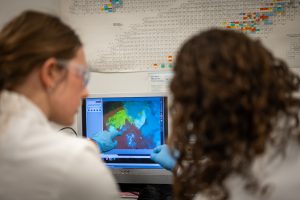
Riegel: I’m not trying to say that industry doesn’t have academic inquiry because some of them do, but they’re not there to teach. They’re not there to provide the underpinnings of the real thought process and how to think about things. Our job as teachers and academics is to present what we think is factual, but also to present the methodology for how you should inquire and think about those as research questions for the future. That’s not the point of industry. It’s a different mindset.
Urbach: I like the phrase ‘mindset’ as a way of describing what’s at the core of the community of scholars that a university represents and the teaching aspect of it. Industry is about producing products. Pushing the frontiers of knowledge by itself is not the goal. That’s what we are about.
What role do undergraduate and graduate students play in research at Georgetown?
Urbach: What students bring is a new perspective. We’re lucky we get that new perspective every year. New students come in and are good at asking the ‘why’ question and challenging us. Research is a community process. You have contributions from folks who have been around for a while and know the accepted wisdom, all the way to people who are just learning it. Those interactions are a key part of moving research forward in many fields.
Riegel: I would answer that in two ways. I’ve been at other institutions like the National Institutes of Health (NIH) and a big university before that. I think the atmosphere here is very personal, interactive and collegial. It’s not always the case in all places where you do research.
The other is the perspective of how social justice and the ethical aspects are considered in research, which is part of the Jesuit mission. It’s not usual to have those coinciding with basic and translational science, but I think it’s important.
How do Georgetown’s Catholic and Jesuit values shape the research at the university?
Urbach: As a physical scientist, I would say it doesn’t shape the research being done, but shapes the way we do the research. The fact that one always needs to consider the ethical implications and the responsibility of scientists in the larger social context, and how the research interfaces with the world.
Riegel: The best example I can give you is the health disparities research we do. DC is a good example of where we have massive health disparities in terms of outcomes and access to care. What I’m impressed with is how Georgetown researchers and students see the value added of addressing these questions in the local context. It’s an important lesson for young people and older people like myself that you don’t live in a vacuum.
